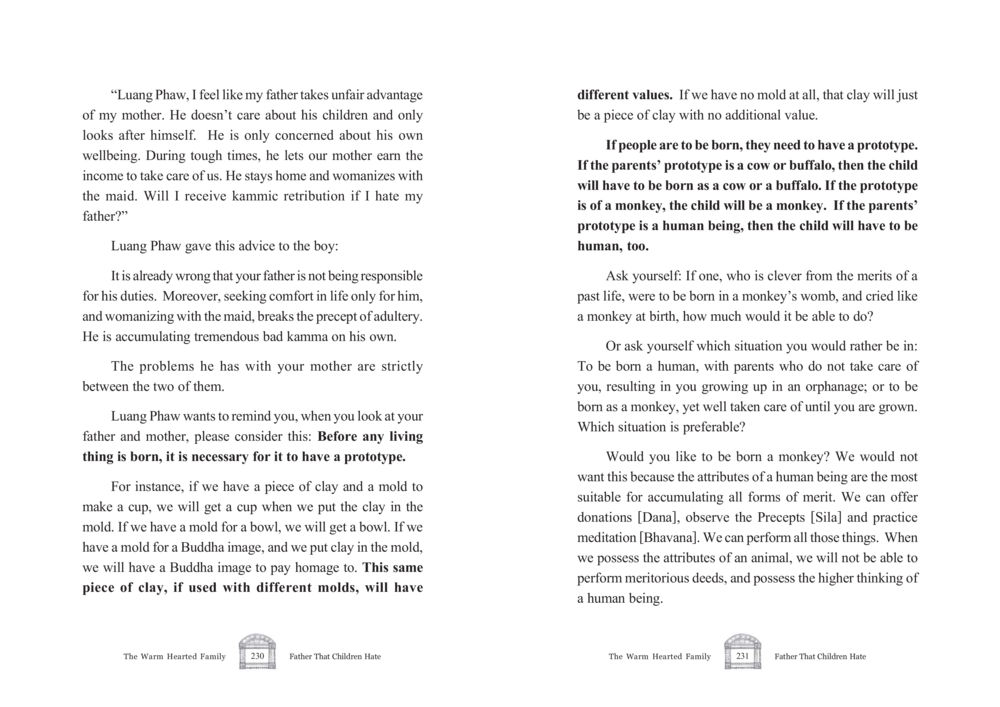Reflections on Family and Kammic Retribution : หน้า 116/207
The Warm Hearted Family : หน้า 116/207 Exploring the impact of parental responsibilities and the concept of kammic retribution in family dynamics.
0 ครั้ง

สรุปเนื้อหา
In this discussion, a boy shares his concerns about his father's irresponsible behavior towards their family. Luang Phaw emphasizes the importance of understanding familial roles and the moral responsibilities that come with them. He explains that the father is accumulating bad kamma due to his actions, particularly his adultery and neglect of his duties. The conversation shifts to the concept of prototypes in birth, where one’s circumstances and the qualities attributed to parents define potential outcomes. Luang Phaw prompts the boy to consider the value of human life compared to animal life in terms of spiritual opportunities, highlighting that having human attributes allows for the practice of merit-making activities that are vital for spiritual growth. Ultimately, he urges compassion over hatred, as the issues between the boy’s parents are theirs to resolve, and encourages the importance of striving for a meaningful and responsible life, regardless of the flaws of others.
หัวข้อประเด็น
-Family responsibilities
-Parental influence
-Kammic retribution
-Buddhist ethics
-Value of human life
-Prototypes in birth
-Morality and personal growth
ข้อความต้นฉบับในหน้า
หน้าหนังสือทั้งหมด















































































































































































































